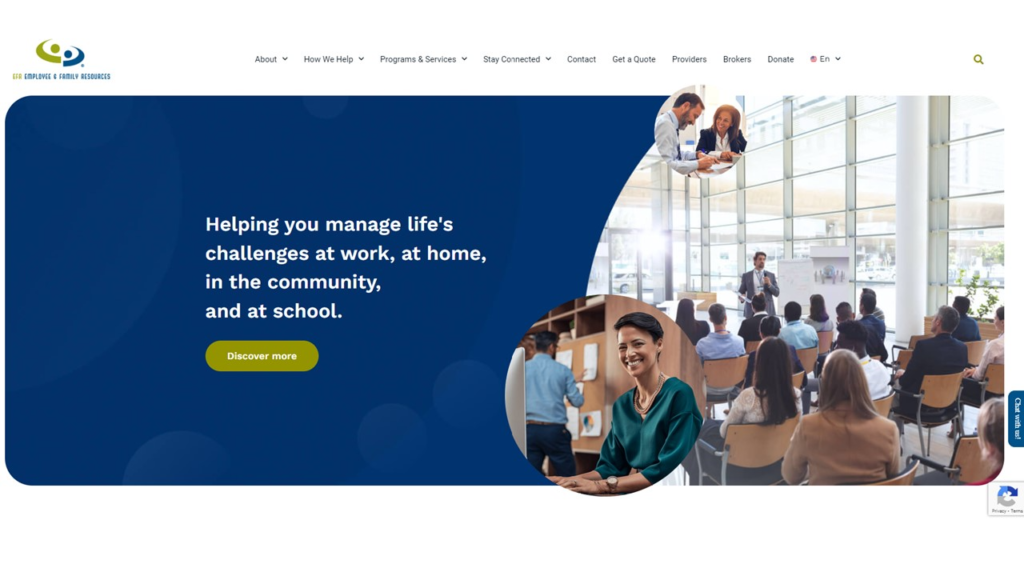Drake’s EAP utilization rate fell from a high of 3.97% in 2018 to 2.38% in 2021 (our most recent year of complete data). According to the National Business Group on Health, the national average for EAP utilization is around 5.5%. This means that Drake faculty and staff are underutilizing this great benefit. The question is, why?

According to Mental Health America, the three main reasons employees may not use their EAP services include: 1) not being aware that EAP exists, what services they offer, and how to access them; 2) being fearful that their employer may be tracking an individual’s usage of services; and 3) the stigma of mental health and its association with EAPs.
Let’s address these concerns.
Awareness. Drake’s EAP provider is Employee & Family Resources (EFR). EFR offers a wonderful range of free EAP resources, including confidential counseling, webinars, podcasts, a blog, self-assessment tools, and a free mobile app for employees and their immediate families. Services also include financial and legal consultation, child/elder care resources, and life coaching by a licensed professional counselor. If you are unsure whether EFR is the right place to go with your question or concern – please reach out to them and ask. You may reach EFR by phone (800-327-4692) 24 hours a day, seven days a week, or visit their website.
Confidentiality Concerns. All EAP services are confidential. No one at Drake will ever be given details about your use of EAP benefits. In fact, the confidentiality of EAP records is protected by the Health Insurance Portability and Accountability Act (HIPAA), which protects the identity and details of employee using EAP services. The only information shared with Drake is a very high-level, general report showing the total aggregate number of people who used EAP services over the course of the year and the percentage by categories (financial, legal…). No names or other identifying information are ever disclosed.
Mental Health Stigma. As noted, the EAP offers a broad range of services to faculty, staff, and their families, including counseling. Yes, confidential mental health counseling is an important part of any EAP (and most of us could benefit from it), but unfortunately there remains some stigma around it. You do not need to be in a crisis to use or benefit from the EAP services. The intention of an EAP is to help you maintain a positive work-life balance and serve as free, convenient, and readily accessible support when life matters keep you from being your best. We could all use a little extra support now and then.
If you would like to learn more about EFR and their EAP services, representatives from EFR are available to attend a department or staff meeting (in-person or virtually) to highlight their resources and help answer any questions. They will present to groups of any size. If you would like EFR to speak during one of your meetings, please send an email to Renee Larsen, EFR Account Manager, at rlarsen@efr.org or phone 515-471-2402.
— Linda Feiden, Human Resources
